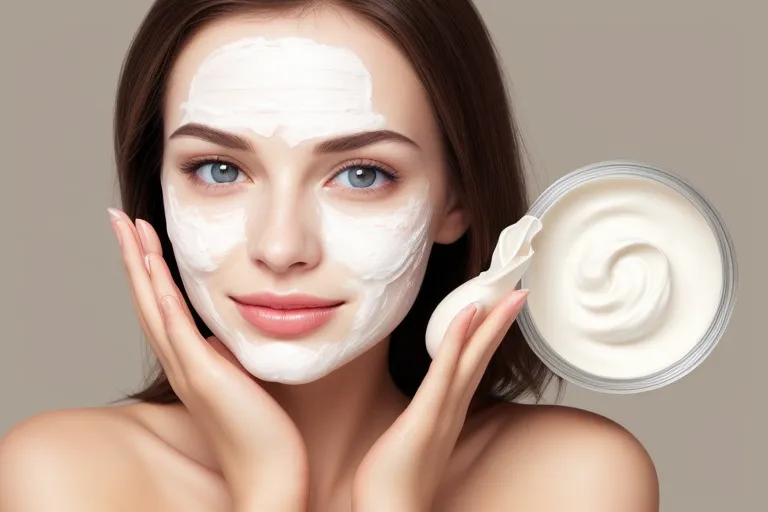Understanding Nivea Cream
Nivea cream, often referred to as the “original moisturizer,” is a rich, thick emollient designed to provide intense hydration to the skin. First introduced in 1911, it has stood the test of time, remaining popular among generations. The cream is known for its simple yet effective formulation, which includes ingredients like water, mineral oil, glycerin, and Eucerit, a lanolin alcohol that helps to lock in moisture.
Benefits of Using Nivea Cream on Your Face
- Deep Hydration: Nivea cream is especially beneficial for those with dry or dehydrated skin. Its thick texture creates a protective barrier on the skin, preventing moisture loss and keeping the skin hydrated for longer periods. This can be particularly helpful during colder months or in dry climates when the skin tends to lose moisture rapidly.
- Versatility: One of the key advantages of Nivea cream is its versatility. It can be used on various parts of the body, including the face, hands, elbows, and knees. For those who prefer a multi-purpose product, Nivea cream serves as an all-in-one solution for moisturizing needs.
- Soothing Properties: The cream’s soothing properties make it suitable for calming irritated or sensitive skin. Whether it’s due to sunburn, windburn, or other environmental factors, applying Nivea cream can help alleviate discomfort and promote healing.
- Affordability: Nivea cream is widely accessible and affordable, making it a go-to choice for many individuals seeking an effective moisturizer without breaking the bank. Its long shelf life and minimal usage per application also contribute to its cost-effectiveness.
- Non-Comedogenic: Despite its thick consistency, Nivea cream is generally considered non-comedogenic, meaning it doesn’t clog pores. This makes it suitable for individuals with acne-prone skin who are concerned about breakouts caused by heavy creams.

Potential Drawbacks of Using Nivea Cream on Your Face
- Heavy Texture: The thick texture of Nivea cream, while beneficial for dry skin, may not be ideal for everyone. Those with oily or combination skin may find the cream too heavy, leading to a greasy or shiny appearance. In such cases, it may be better suited for nighttime use or as a spot treatment for dry patches rather than as a daily facial moisturizer.
- Fragrance: Nivea cream contains fragrance, which can be a potential irritant for individuals with sensitive skin or those prone to allergies. If you have a history of reacting to fragranced products, it’s advisable to perform a patch test before applying Nivea cream to your face.
- Not Specialized: While Nivea cream is effective as a general moisturizer, it may not provide the specialized benefits that some individuals seek in their skincare routine. For example, those looking for anti-aging properties, sun protection, or targeted treatments for specific skin concerns like hyperpigmentation may need to supplement their routine with additional products.
- Lanolin Content: Eucerit, derived from lanolin, is one of the key moisturizing agents in Nivea cream. Although it’s highly effective at locking in moisture, some people may be sensitive or allergic to lanolin. If you have a known lanolin allergy, Nivea cream may not be suitable for you.
How to Use Nivea Cream on Your Face
If you’ve decided to incorporate Nivea cream into your skincare routine, here are some tips on how to use it effectively:
- For Dry Skin: Apply a small amount of Nivea cream to your face after cleansing and toning. Gently massage it into your skin using upward motions until fully absorbed. You can use it both in the morning and at night for continuous hydration.
- As a Night Cream: For those with normal to oily skin, using Nivea cream as a night cream can be beneficial. The thick formula can work overnight to restore moisture, leaving your skin soft and supple by morning.
- Spot Treatment: If you have combination skin, apply Nivea cream only to the dry areas of your face, such as around the eyes or on any rough patches. This targeted approach ensures that you receive the moisturizing benefits without overloading the oilier parts of your skin.
- Under Makeup: While Nivea cream can be used under makeup, it’s important to let it fully absorb into the skin before applying foundation or other products. This prevents the makeup from slipping or looking too shiny.
Conclusion: Is Nivea Cream Good for Your Face?
Nivea cream has stood the test of time as a reliable and effective moisturizer. Its ability to deeply hydrate and soothe the skin makes it a valuable addition to many skincare routines, especially for those with dry or sensitive skin. However, its heavy texture and fragrance may not be suitable for everyone, particularly those with oily skin or fragrance sensitivities. As with any skincare product, it’s essential to consider your skin type and individual needs when deciding whether Nivea cream is right for your face.

